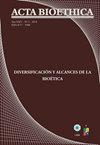突发公共卫生事件伦理决策的理论框架
IF 0.3
4区 哲学
Q4 ETHICS
引用次数: 2
摘要
新的理论伦理框架是伦理主体的通用框架或工具,旨在指导公共卫生应急准备和响应过程中的伦理推理。TEF基于这样一种假设,即现有的医学伦理学话语不足以解决PHE的伦理问题。现有方法提出的解决方案在实用性和有效性方面都是有限的,因为它们无法解决根本问题和道德问题之间的相互作用。这种不足的原因在于PHE的伦理问题具有因果关系和互惠关系,任何伦理决策框架都应该提供足够广泛的视角来考虑相关的伦理规范和理论,以提出符合公共价值观和文化规范的实用、可实施、连贯的解决方案。我们为PHE建议的TEF包含了一个整体和综合的伦理视角,使我们能够理解PHE现象在各种环境中产生的伦理问题是相互关联的,而不是作为一个独立的问题来解决。TEF为决策者提供了一个连贯的、经过深思熟虑的、符合各种环境中的道德价值观和原则的判断网络。这种类型的概念化提供了一个广泛的视角来看待问题之间的因果关系,并产生折衷方法所不可能产生的结果。本文章由计算机程序翻译,如有差异,请以英文原文为准。
A Theoretical Framework for Ethical Decision-Making During Public Health Emergencies
The new theoretical ethical framework is a general frame or tool for ethical agents, developed to guide ethical reasoning during public health emergency preparedness and response. The TEF is based on the assumption that no existing ethical discourse in medical ethics alone is sufficient to address ethical issues of a PHE. The solutions suggested by existing approaches are limited in practicability and effectiveness, because they cannot address root problems and interplay among ethical problems. The reason for this insufficiency rests on the argument that ethical problems of PHEs have causal and reciprocal relationships, and any ethical decision-making framework should provide a wide enough perspective to consider relevant ethical norms and theories to suggest practical, implementable, coherent solutions compatible with the communal values and cultural norms. The TEF we suggest for PHEs embraces a holistic and integrated ethical perspective that enables us to comprehend that ethical problems that arise in various settings caused by PHE phenomena are in relationship with each other instead of addressing them as a standalone problem. The TEF provides decision-makers to achieve a coherent web of considered judgements compatible with ethical values and principles in various settings. This type of conceptualization offers a wide perspective to see causal and relational relationships among problems and produce outcomes that would not be possible by eclectic approaches.
求助全文
通过发布文献求助,成功后即可免费获取论文全文。
去求助
来源期刊

Acta Bioethica
Bioethical Issues-
CiteScore
0.40
自引率
0.00%
发文量
22
审稿时长
12 weeks
期刊介绍:
Acta Bioethica is a biannual publication by the Interdisciplinary Center for Studies in Bioethics of the University of Chile (ISSN 0717-5906, press edition, y 1726-569-X, electronic edition), which publishes in three languages: Spanish, English and Portuguese.
Indexed in Science Citation Index (SCI), Scopus, Lilacs, SciELO y Latindex, and in database from several Institutions; it constitutes a pluralistic source of perspectives and an important tribune which accepts the contributions of authors compromised with the interdisciplinary study of ethical determinants and consequences of techno scientific research.
 求助内容:
求助内容: 应助结果提醒方式:
应助结果提醒方式:


